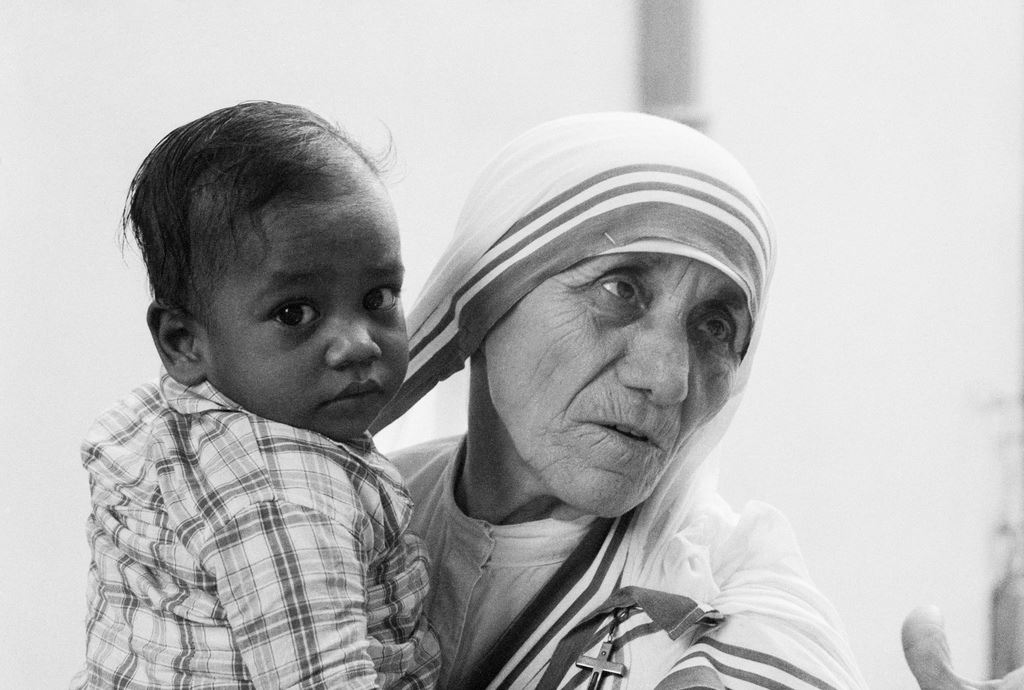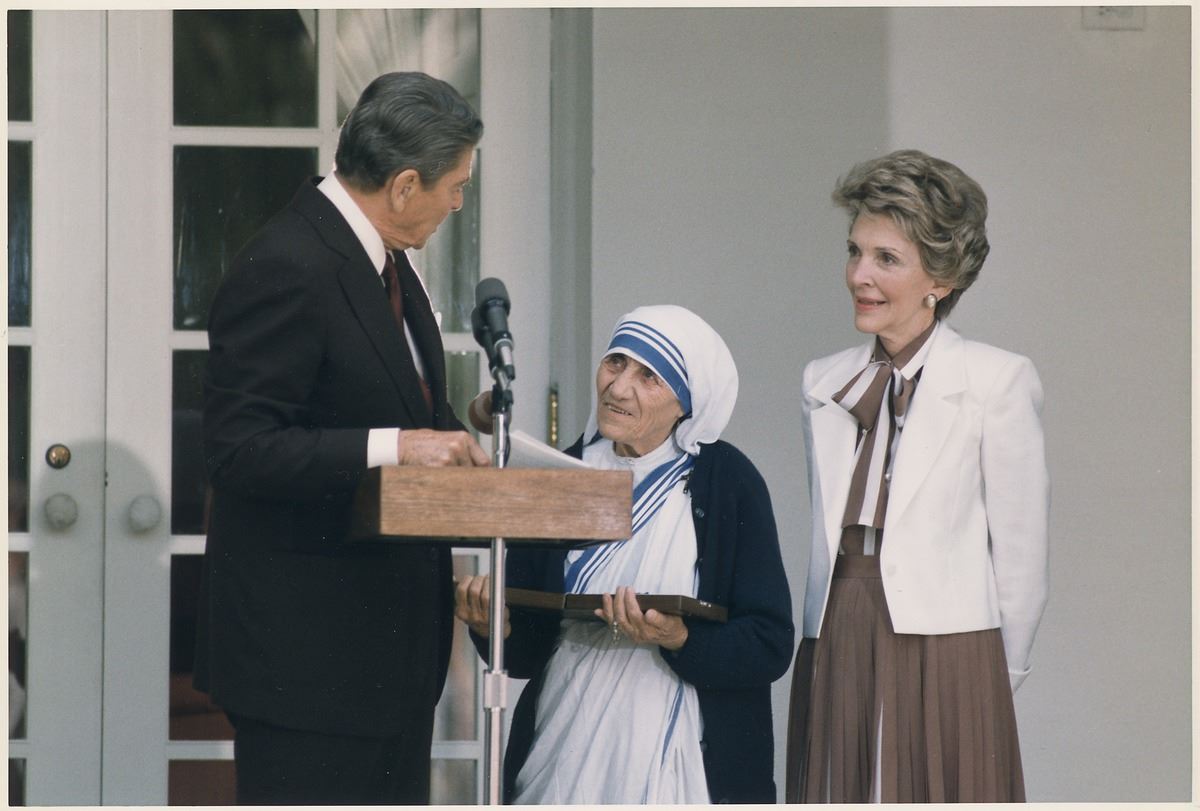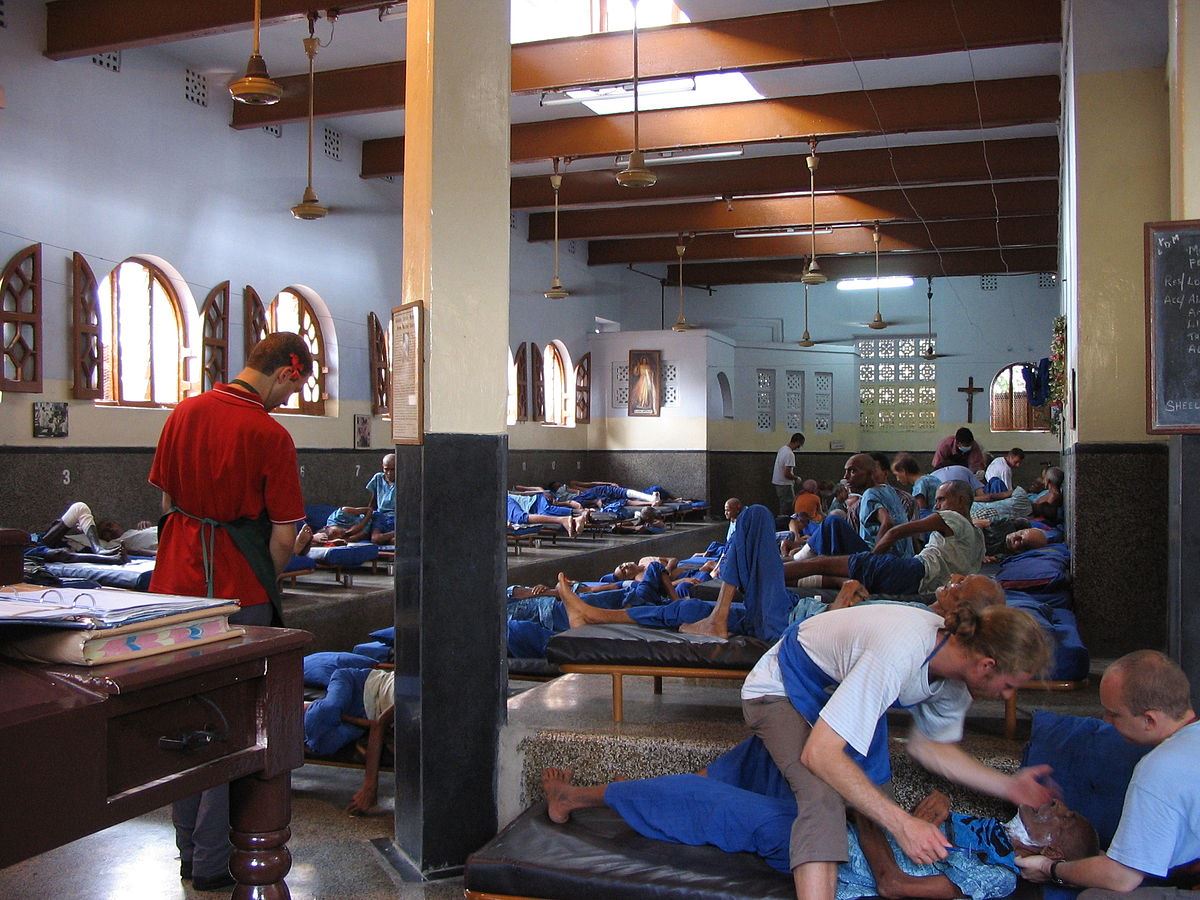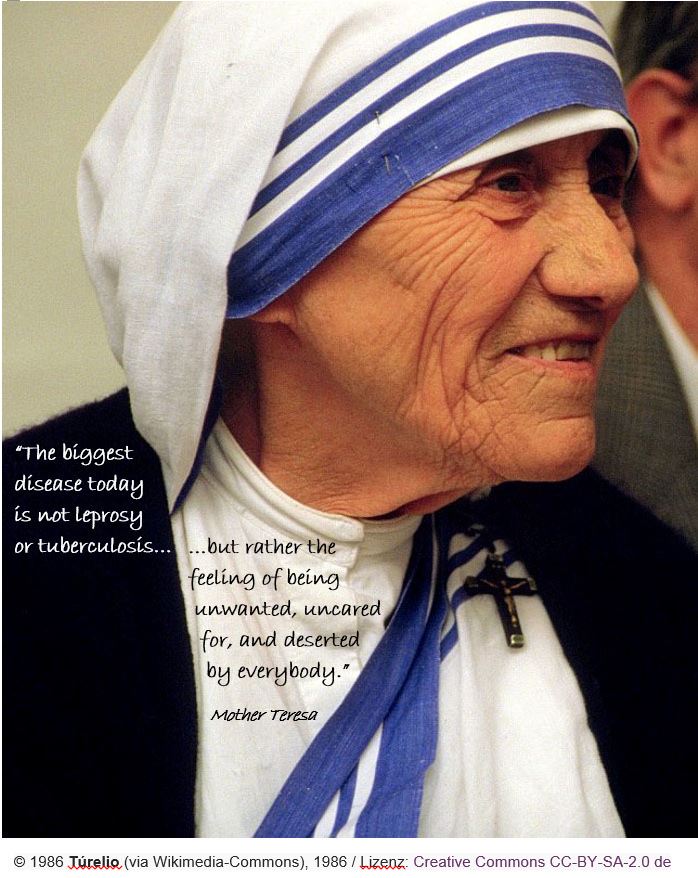 Like a mother, full of compassion and lovehttps://www.flickr.com/photos/97453745@N02/9273335651 Strong and Selfless “Heroes don't go for the perishable trophies - they go for the imperishable trophies. Their rules and their goals are different” (Harper). In his essay “How Should we Choose our Heroes?”, Charles Harper argues that true heroes do not perform their work for recognition and personal gain and rather perform them to “strengthen the fabric of the global village in which we live” (Harper). Society today defines heroism based on physical trophies, like wealth, fame, and power. But true heroes in our lives do not enshrine materialism and, instead, seek to further mankind. So, what traits does a true hero possess? And which actions can be considered heroic and which ones cannot? Many simple-seeming acts performed every day by countless individuals throughout the world exhibit heroism. Something as simple as a man helping an old lady cross the street is heroic. The man who always goes to donate his blood is an example of a hero. Even the stranger who holds the door open is heroic. Anyone who selflessly intervenes in a situation showcases heroic characteristics. All of these heroes have a few underlying similarities: they possess qualities that our society values, like integrity, courage, and compassion. Additionally, I believe a hero worthy of my admiration remains determined and tirelessly works to better the condition of those around him. In order to accomplish this, a hero must display the key trait of altruism, which must be evident through his actions and character. He must also maintain a resolute personality and not allow any obstacles to drag him down, no matter how demanding they may appear.
Like a mother, full of compassion and lovehttps://www.flickr.com/photos/97453745@N02/9273335651 Strong and Selfless “Heroes don't go for the perishable trophies - they go for the imperishable trophies. Their rules and their goals are different” (Harper). In his essay “How Should we Choose our Heroes?”, Charles Harper argues that true heroes do not perform their work for recognition and personal gain and rather perform them to “strengthen the fabric of the global village in which we live” (Harper). Society today defines heroism based on physical trophies, like wealth, fame, and power. But true heroes in our lives do not enshrine materialism and, instead, seek to further mankind. So, what traits does a true hero possess? And which actions can be considered heroic and which ones cannot? Many simple-seeming acts performed every day by countless individuals throughout the world exhibit heroism. Something as simple as a man helping an old lady cross the street is heroic. The man who always goes to donate his blood is an example of a hero. Even the stranger who holds the door open is heroic. Anyone who selflessly intervenes in a situation showcases heroic characteristics. All of these heroes have a few underlying similarities: they possess qualities that our society values, like integrity, courage, and compassion. Additionally, I believe a hero worthy of my admiration remains determined and tirelessly works to better the condition of those around him. In order to accomplish this, a hero must display the key trait of altruism, which must be evident through his actions and character. He must also maintain a resolute personality and not allow any obstacles to drag him down, no matter how demanding they may appear.
 Teresa receives the Presidential Medal of Freedom in 1985https://commons.wikimedia.org/wiki/File:Photograph_of_The_Reagans_presenting_Mother_Teresa_with_the_Medal_of_Freedom_at_a_White_House_Ceremony_-_NARA_-_198564.tifOne such person who embodies these heroic traits of altruism and resoluteness is in fact, not a he, but a she: Mother Teresa. Teresa was a Roman Catholic nun who devoted her entire life to serving the destitute all over the world, especially in Calcutta, India, at a time when poverty and unemployment peaked. Mother Teresa was born Agnes Gonxha Bojaxhiu in Skopje, Yugoslavia, on August 27, 1910. From the young age of 12, she yearned to become a nun and at the age of 18, she fulfilled this calling by joining the Sisters of Loreto, a group of Irish nuns with a mission in Calcutta, and started teaching there in a convent school. After witnessing the poverty and misery around her firsthand, Teresa felt a “call within a call” in 1946. This call led her to begin her lifelong journey of extreme devotion and service to the destitute. On 7 October 1950, Mother Teresa formed the congregation The Missionaries of Charity who vowed to “give free service to the most abjectly poor” (“Mother Teresa”). She and her sisters built numerous hospices, homes for orphans, schools for the poor children, and even built a colony just for lepers. In a few years, her group began to expand beyond Calcutta and spread to over 200 different locations in over 25 countries by 1979. In the same year, Teresa received the Nobel Peace Prize for her humanitarian work. Later in her life, she also received numerous other awards from the Indian government and from the Catholic church. In the following decades, despite her declining health, Teresa continued with her selfless work, until she finally retired in March 1997. Soon after, Teresa died in September 1997. Over the course of the 50 years that Mother Teresa dedicated to serving the poor, she selflessly chose to do so by leaving her rich life and by living among the poor. Throughout her entire life, Mother Teresa never lost her inner drive for her cause and persevered through the toughest of times. Mother Teresa epitomizes heroism and her virtues serve as an inspiration to the entire world as she embodies the heroic trait of altruism, while displaying steadfast determination and a resolute personality.
Teresa receives the Presidential Medal of Freedom in 1985https://commons.wikimedia.org/wiki/File:Photograph_of_The_Reagans_presenting_Mother_Teresa_with_the_Medal_of_Freedom_at_a_White_House_Ceremony_-_NARA_-_198564.tifOne such person who embodies these heroic traits of altruism and resoluteness is in fact, not a he, but a she: Mother Teresa. Teresa was a Roman Catholic nun who devoted her entire life to serving the destitute all over the world, especially in Calcutta, India, at a time when poverty and unemployment peaked. Mother Teresa was born Agnes Gonxha Bojaxhiu in Skopje, Yugoslavia, on August 27, 1910. From the young age of 12, she yearned to become a nun and at the age of 18, she fulfilled this calling by joining the Sisters of Loreto, a group of Irish nuns with a mission in Calcutta, and started teaching there in a convent school. After witnessing the poverty and misery around her firsthand, Teresa felt a “call within a call” in 1946. This call led her to begin her lifelong journey of extreme devotion and service to the destitute. On 7 October 1950, Mother Teresa formed the congregation The Missionaries of Charity who vowed to “give free service to the most abjectly poor” (“Mother Teresa”). She and her sisters built numerous hospices, homes for orphans, schools for the poor children, and even built a colony just for lepers. In a few years, her group began to expand beyond Calcutta and spread to over 200 different locations in over 25 countries by 1979. In the same year, Teresa received the Nobel Peace Prize for her humanitarian work. Later in her life, she also received numerous other awards from the Indian government and from the Catholic church. In the following decades, despite her declining health, Teresa continued with her selfless work, until she finally retired in March 1997. Soon after, Teresa died in September 1997. Over the course of the 50 years that Mother Teresa dedicated to serving the poor, she selflessly chose to do so by leaving her rich life and by living among the poor. Throughout her entire life, Mother Teresa never lost her inner drive for her cause and persevered through the toughest of times. Mother Teresa epitomizes heroism and her virtues serve as an inspiration to the entire world as she embodies the heroic trait of altruism, while displaying steadfast determination and a resolute personality.
In her immense service to the impoverished, Mother Teresa illustrated heroism by displaying her altruistic nature. Teresa exhibited this characteristic even before she founded her organization. After witnessing the living conditions of the millions of poverty-stricken people in Calcutta, Mother Teresa left her comfortable convent life with almost nothing:
The lives of the sisters and students in the convent followed a peaceful and orderly pattern . . . She [Teresa] knew that to serve the poor of the streets, she would have to break her commitment of spending her life teaching in the Loreto order . . . On that August day, Sister Teresa gave up the nun's habit she had worn for 21 years. She put on a white sari, the traditional dress of Indian women, which she had fashioned herself out of the cheapest material she could find . . . With her new habit and a cross pinned to her left shoulder, Sister Teresa left the convent with a small amount of money from her Loreto sisters. (Dils and Horner)
 The two things with which Mother Teresa started: a simple sari and strong faithhttps://commons.wikimedia.org/wiki/File:Majka_Tereza_memorial_house_03.jpgTeresa had an inner drive that led her to selflessly giving up a comfortable, rich life while choosing to serve the most unloved section of society. Furthermore, Mother Teresa gave up any personal possessions she owned and only carried a small amount of money for herself. Like a true hero, she strived to help the weak, while relinquishing all of her luxuries and taking on a challenging and uncertain path. Not only did Mother Teresa sacrifice her comfort, but she also renounced all personal possessions. After receiving a gift from the Pope, Mother Teresa auctioned it to generate income for her cause: “In 1964, on his trip to India, Pope Paul VI gave her his ceremonial limousine, which she immediately raffled to help finance her leper colony” (“Teresa, Blessed Mother”). Teresa’s altruism was demonstrated by her not holding on to any physical assets, irrespective of their value. The only thing that she cared about was making the poor and downtrodden feel loved and valued as she put everything she earned into furthering this mission. A true hero does exactly that: he rises above personal desires and possessions and, instead, ensures that his actions are oriented towards the greater good of society. The way she chose to live further highlights Teresa’s selflessness. In an interview with Mother Teresa, conducted by Edward Desmond in 1988, Teresa explained her reasoning behind why she and her sisters lived like the poor themselves:
The two things with which Mother Teresa started: a simple sari and strong faithhttps://commons.wikimedia.org/wiki/File:Majka_Tereza_memorial_house_03.jpgTeresa had an inner drive that led her to selflessly giving up a comfortable, rich life while choosing to serve the most unloved section of society. Furthermore, Mother Teresa gave up any personal possessions she owned and only carried a small amount of money for herself. Like a true hero, she strived to help the weak, while relinquishing all of her luxuries and taking on a challenging and uncertain path. Not only did Mother Teresa sacrifice her comfort, but she also renounced all personal possessions. After receiving a gift from the Pope, Mother Teresa auctioned it to generate income for her cause: “In 1964, on his trip to India, Pope Paul VI gave her his ceremonial limousine, which she immediately raffled to help finance her leper colony” (“Teresa, Blessed Mother”). Teresa’s altruism was demonstrated by her not holding on to any physical assets, irrespective of their value. The only thing that she cared about was making the poor and downtrodden feel loved and valued as she put everything she earned into furthering this mission. A true hero does exactly that: he rises above personal desires and possessions and, instead, ensures that his actions are oriented towards the greater good of society. The way she chose to live further highlights Teresa’s selflessness. In an interview with Mother Teresa, conducted by Edward Desmond in 1988, Teresa explained her reasoning behind why she and her sisters lived like the poor themselves:
We choose that. That is the difference between us and the poor. Because what will bring us closer to our poor people? How can we be truthful to them if we lead a different life? If we have everything possible that money can give, that the world can give, then what is our connection to the poor? What language will I speak to them? Now, if the people tell me, “It is so hot,” I can say: “You come and see my room.” (Desmond)
Teresa demonstrates the highest level of selflessness here. Not only did she dedicate her entire life to helping those less fortunate, but she did so by living with and like the poor to build a strong connection with them and to help them better. Mother Teresa chose to personally feel the pain and sufferings of the people she served. This choice shows the extent of her selfless involvement and the level of her dedication to the cause, which makes her deserving of the title “hero”. As she devoted her life for the impoverished, Mother Teresa displayed the altruism and selflessness only a true hero possesses.
 Mother Teresa's work lives on to this day with thousands of volunteers in many countrieshttps://commons.wikimedia.org/wiki/File:Nirmal_Hriday.JPGMother Teresa’s resolute personality, exhibited through her response to numerous obstacles in her life, exemplifies heroic values. After feeling a great urge to help the poor, Teresa’s first objective was to persuade the church about her mission: “She had realized that this was where her true vocation lay, and she pursued this goal with diligence, even obstinacy. This she did till the Vatican made her its first exception in several hundred years, permitting her to step out of the Loreto Order, but with her vows intact” (Chawla, “Mother Teresa: A Remembrance”). Being a nun, Teresa knew that fulfilling her dream would lead to the breaking of her vows. Nevertheless, she persevered and her strong will carved out a way, making her a first to accomplish something no nun had in many centuries. Teresa’s quality of not giving up in what she believed in, no matter how unattainable it may have appeared, distinctly represents a true hero’s perseverance through the hardest of times. Furthermore, after waiting patiently for two years for the church to approve her request, Teresa did not waste a single second after receiving the Vatican degree granting her permission to work outside the convent, and instantaneously contacted her spiritual director: “Her first question on hearing the news from her spiritual director, Father van Exem, was: ‘Excuse me, Father, can I go to the slums now?’” (Menon). Teresa kept her enthusiasm and passion from the start and she remained firm and determined on her inner call to serve the poor. She promptly acted on it the moment she received permission from the Vatican. This forthright action illustrates how she manifested the heroic trait of having a purposeful character, which enables one to remain passionate for his cause from the start to the very end, unaffected by circumstances. Additionally, Teresa displayed a resolve for her organization from its first day. Today, The Missionaries of Charity has thousands of dedicated nuns committed to the cause in many countries. But when she had founded her organization, Mother Teresa did not have any form of support available to her except for her faith in her work: “She was without helper or companion or even money, the last out of choice. The only thing she had in abundant measure was faith . . . And so she toiled, walking miles each day from her temporary abode to an uncertain future” (Chawla, “Saint of the Dispossessed”). Despite the lack of support in the start, Teresa labored for what she believed in. Even though she faced numerous challenges, she did not deviate from her path. Teresa’s unswerving character enabled her to remain firm through the toughest of times, just like how a true hero can combat any obstacle thrown at him through his boldness. Mother Teresa defines a hero because of the resolute personality she displayed throughout her lifetime, especially when she dealt with various challenges.
Mother Teresa's work lives on to this day with thousands of volunteers in many countrieshttps://commons.wikimedia.org/wiki/File:Nirmal_Hriday.JPGMother Teresa’s resolute personality, exhibited through her response to numerous obstacles in her life, exemplifies heroic values. After feeling a great urge to help the poor, Teresa’s first objective was to persuade the church about her mission: “She had realized that this was where her true vocation lay, and she pursued this goal with diligence, even obstinacy. This she did till the Vatican made her its first exception in several hundred years, permitting her to step out of the Loreto Order, but with her vows intact” (Chawla, “Mother Teresa: A Remembrance”). Being a nun, Teresa knew that fulfilling her dream would lead to the breaking of her vows. Nevertheless, she persevered and her strong will carved out a way, making her a first to accomplish something no nun had in many centuries. Teresa’s quality of not giving up in what she believed in, no matter how unattainable it may have appeared, distinctly represents a true hero’s perseverance through the hardest of times. Furthermore, after waiting patiently for two years for the church to approve her request, Teresa did not waste a single second after receiving the Vatican degree granting her permission to work outside the convent, and instantaneously contacted her spiritual director: “Her first question on hearing the news from her spiritual director, Father van Exem, was: ‘Excuse me, Father, can I go to the slums now?’” (Menon). Teresa kept her enthusiasm and passion from the start and she remained firm and determined on her inner call to serve the poor. She promptly acted on it the moment she received permission from the Vatican. This forthright action illustrates how she manifested the heroic trait of having a purposeful character, which enables one to remain passionate for his cause from the start to the very end, unaffected by circumstances. Additionally, Teresa displayed a resolve for her organization from its first day. Today, The Missionaries of Charity has thousands of dedicated nuns committed to the cause in many countries. But when she had founded her organization, Mother Teresa did not have any form of support available to her except for her faith in her work: “She was without helper or companion or even money, the last out of choice. The only thing she had in abundant measure was faith . . . And so she toiled, walking miles each day from her temporary abode to an uncertain future” (Chawla, “Saint of the Dispossessed”). Despite the lack of support in the start, Teresa labored for what she believed in. Even though she faced numerous challenges, she did not deviate from her path. Teresa’s unswerving character enabled her to remain firm through the toughest of times, just like how a true hero can combat any obstacle thrown at him through his boldness. Mother Teresa defines a hero because of the resolute personality she displayed throughout her lifetime, especially when she dealt with various challenges.
Through her determined and resolute disposition and via her altruism, displayed throughout her many selfless actions, Mother Teresa proves herself deserving of the title hero and serves as an inspiration to the entire world. Teresa devoted her entire life and made it a personal mission to look after the unloved and unwanted of the world: just like a mother looks after her children. Teresa not giving into the financial barriers and the church’s established practices showcase her perseverance and passion for her noble cause, and her heroism is further demonstrated by the selfless sacrifices she made throughout her entire life. These traits of altruism and resoluteness displayed by Teresa are the quintessential heroic characteristics that everyone should strive to possess. A selfless person with a resolve holds the key to solving the world’s greatest problems. Through his altruism, he can overcome the fear of his comfort and safety, a fear that often hinders many from performing countless heroic acts. In addition, having a determined character enables him to remain true to his quest to better mankind, irrespective of the challenges on his path. Mother Teresa serves as a role model to everyone around the world as she provided the highest level of service one could to mankind. Teresa did so not only by just showing love and compassion but also by leaving behind everything she ever owned, physical and mental, to love the unloved, undeterred by hardships she faced. Furthermore, Mother Teresa inspires me too. Knowing her story from a small age, she has always motivated me because she has instilled in me to stay determined with any task in life, heroic or not. As illustrated by Parvathi Menon in her article “A Life of Selfless Caring”, Mother Teresa will be remembered mostly for her unwavering personality:
Mother Teresa will be remembered for many things, but the most enduring memory of her will be that of a person who translated ideas into action quickly - a doer unwavering in her purpose, an unstoppable person. Government bureaucracy and red tape, the criticism of her detractors, the hardship of the street, her close encounters with human misery and her own declining health in the last years of her life - before none of these did she accept defeat. Mother Teresa got on with her job: that of serving the poorest of the poor. (Menon)
Mother Teresa worked for what she believed in and did not let anyone or any experience take that inner passion and dedication to her work away from her, up until her death. This resoluteness depicted by Teresa serves as a great inspiration, especially to me- it proves how one can accomplish anything as long as they possess a strong inner drive and the ability to persevere and not lose faith in themselves. In addition, her selfless care to reduce the pain and suffering of fellow humans inspires me to choose a career in the medical field to achieve the same, even if to a much smaller scale. As demonstrated by Mother Teresa, a true hero lives by a different set of rules and his only goal in life is to further mankind.
 Mother Teresa believed the cure for the disease of hatred and unwantedness is lovehttps://www.flickr.com/photos/leprosymissionie/15942099672Works Cited
Mother Teresa believed the cure for the disease of hatred and unwantedness is lovehttps://www.flickr.com/photos/leprosymissionie/15942099672Works Cited
Chawla, Navin. “Mother Teresa: A Remembrance.” Navin Chawla, 25 Aug. 2010, www.navinchawla.com/articles/mother-teresa-a-remembrance.asp.
---. “Saint of the Dispossessed.” Navin Chawla, 26 Aug. 2004, www.navinchawla.com/articles/saint-dispossessed.asp.
Desmond, Edward, and Mother Teresa. “Seeing and Loving Jesus in the Poor.” National
Catholic Register, EWTN News, 26 Sept. 2016, www.ncregister.com/daily-news/mother-teresa-seeing-and-loving-jesus-in-the-poor. Accessed 5 Jan. 2019.
Harper, Charles. “How Should We Choose Our Heroes?” The MY HERO Project, myhero.com/TeachersRoom/Show/9.
Horner, Matina S., and Tracey E. Dils. “Mother Teresa.” Mother Teresa (0-7910-5887-5), Jan. 2002, p. 7. EBSCOhost, search.ebscohost.com/login.aspx?direct=true&db=b6h&AN=9226124&site=brc-live.
Menon, Parvathi. “A Life of Selfless Caring.” Frontline, 20 Sept. 1997, p. 1.
"Mother Teresa." Encyclopedia of World Biography, Gale, 1998. Biography In Context, https://link.galegroup.com/apps/doc/K1631006438/BIC?u=powa9245&sid=BIC&xid=b14e4bbe. Accessed 20 Dec. 2018.
“Teresa, Blessed Mother.” Britannica Biographies, Mar. 2012, p. 1. EBSCOhost, search.ebscohost.com/login.aspx?direct=true&db=b6h&AN=32424897&site=brc-live.
Page created on 2/14/2019 4:31:04 AM
Last edited 2/14/2019 5:39:52 AM
